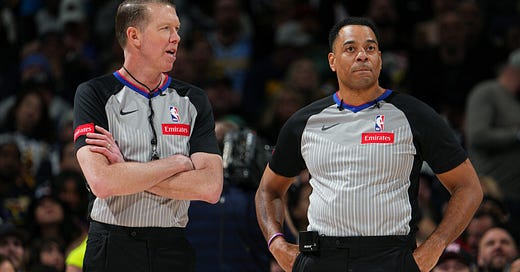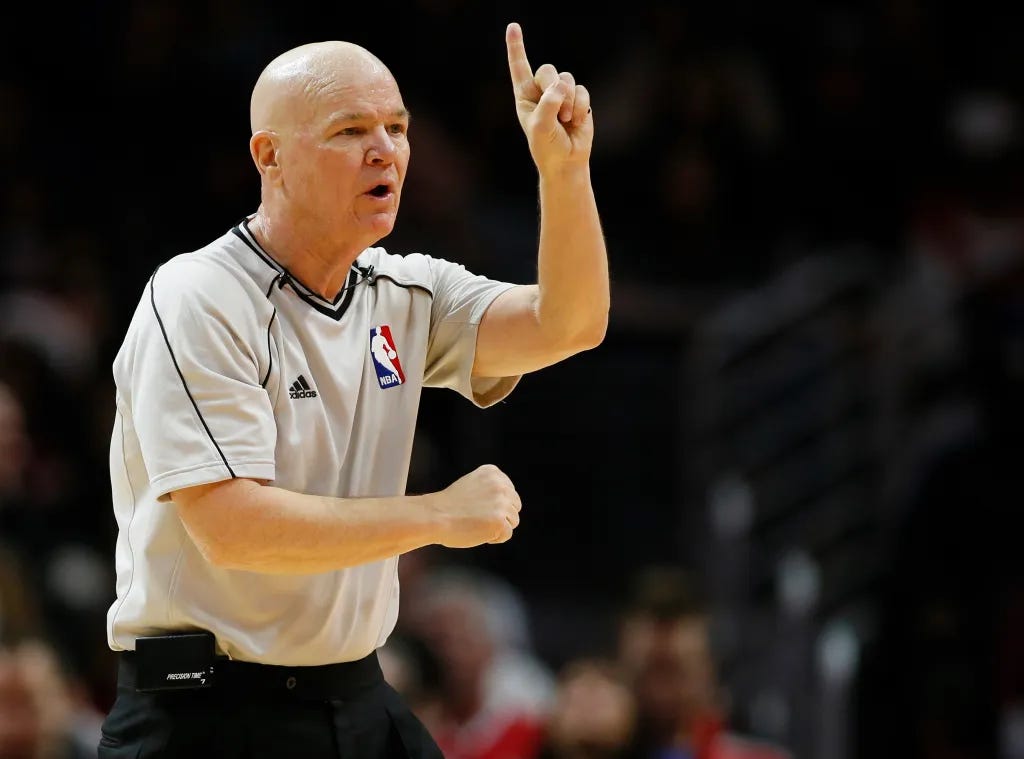The Role of Body Language: Top 5 Mistakes and How to Correct Them
Speak without words, master the art of body language: Identify and rectify the top 5 mistakes for effective communication
As a referee, your body language speaks volumes on the field. It's a powerful tool that can make or break your credibility, command respect, and effectively manage the game. Whether you're a seasoned veteran or just starting your officiating journey, mastering the art of body language is crucial.
You may know the rules and have a sharp eye for the game, but if your body language is off, it can undermine your authority and lead to chaos on the field. Players, coaches, and spectators are constantly observing your every move, looking for cues that convey confidence, decisiveness, and control.
In this blog post, we'll dive deep into the world of body language in refereeing. You'll discover the top 5 body language mistakes referees commonly make and how they can negatively impact the game. But don't worry, we won't leave you hanging! We'll also provide practical tips and techniques to help you correct these mistakes and elevate your officiating skills to the next level.
So, let's get started on this journey to mastering the unspoken language of officiating. Your body language speaks louder than your whistle, and it's time to make sure it's sending the right message. Get ready to take your refereeing game to new heights!
The Top 5 Body Language Mistakes Referees Make
Crossed Arms: When you cross your arms, it can come across as defensive, unapproachable, or uninterested. Players and coaches may perceive this as a lack of engagement or an unwillingness to communicate effectively.
Poor Eye Contact: Failing to maintain appropriate eye contact with players, coaches, and fellow officials can convey a lack of confidence or attentiveness. It's important to strike a balance between assertive eye contact and not appearing confrontational.
Slouching or Hunching: Poor posture, such as slouching or hunching, can make you appear less authoritative and in control. It can also lead to fatigue and decreased awareness on the field.
Fidgeting or Nervous Gestures: Fidgeting, such as playing with a whistle, adjusting clothing frequently, or excessive hand movements, can signal nervousness and distract players and fans. Calm, deliberate movements help maintain a professional demeanor and focus on the game.
Lack of Decisive Signaling: Hesitant or unclear signals can create confusion and frustration among players and coaches. Your signals should be crisp, clear, and confident to effectively communicate your calls and maintain control of the game.
Effects of These Mistakes on the Game
The body language mistakes mentioned above can have significant consequences on the game:
Loss of Credibility: When your body language contradicts your calls or conveys uncertainty, players and coaches may question your credibility as an official. This can lead to increased challenges to your decisions and a loss of respect for your authority.
Confusion and Chaos: Poor body language, such as unclear signaling or lack of assertiveness, can create confusion on the field. Players may misinterpret your calls, leading to chaos and disruptions in the flow of the game.
Escalation of Tensions: When your body language appears confrontational or disengaged, it can escalate tensions between players, coaches, and officials. This can result in heated arguments, unsportsmanlike behavior, and a negative overall atmosphere on the field.
Missed Calls and Inconsistency: If your body language reflects a lack of focus or attentiveness, you may miss crucial calls or make inconsistent decisions. This can frustrate players and coaches and compromise the fairness and integrity of the game.
Picture this: you're in the middle of an important game, and your body language is sending all the wrong signals. Your crossed arms and lack of eye contact have players and coaches questioning your calls left and right. It also lets them know that you are under stress and trying to avoid communication. Confusion spreads across the arena as players struggle to interpret your unclear signals. Tempers flare, and the game quickly descends into chaos and dissatisfaction. Inconsistent calls, missed plays, and a general sense of uncertainty can all stem from poor body language choices.
The impact of these mistakes extends beyond just a single game. Over time, a referee's reputation can suffer, making it harder to command respect and maintain control in future games. It's a slippery slope that can be difficult to recover from, emphasizing the importance of mastering the art of body language from the start.
Tips for Correcting Body Language Mistakes
Ask for Feedback: Regularly assess your body language during games and identify any mistakes or areas for improvement. Ask fellow officials or mentors for feedback and be open to constructive criticism.
Maintain an Open and Approachable Stance: Keep your arms uncrossed and maintain an open posture. This conveys approachability and a willingness to engage with players and coaches when necessary.
Use Appropriate Eye Contact: Make direct eye contact with players and coaches when communicating decisions or addressing concerns. However, it's important to avoid staring for an extended time or with too much intensity, as this behavior can be perceived as aggressive.
Stand Tall and Confident: Maintain good posture by standing tall with your shoulders back. This projects confidence and authority on the field.
Use Clear and Decisive Signals: Practice your signals to ensure they are crisp, clear, and easily understood. Avoid hesitation or ambiguity in your signaling to maintain control and minimize confusion.
Stay Calm and Composed: Take deep breaths and maintain a calm demeanor, even in high-pressure situations. Your composure will help de-escalate tensions and keep the game running smoothly.
Engage in Positive Interactions: When appropriate, engage in brief, positive interactions with players and coaches. A smile, nod, or quick word of encouragement can go a long way in building rapport and maintaining a positive atmosphere.
Reading Suggestions:
"The Definitive Book of Body Language" by Allan and Barbara Pease
"What Every BODY is Saying" by Joe Navarro and Marvin Karlins
"The Silent Language of Leaders" by Carol Kinsey Goman
Conclusion
For us referees, body language is a powerful tool that can make or break our success on the field. By understanding and correcting common body language mistakes, we can elevate our officiating skills and command the respect and trust of players, coaches, and spectators alike.
By investing time into understanding the nuances of body language and its impact on your officiating, you're not just refining a skill—you're honing an art form. This commitment to mastering the silent language of officiating can transform the way you navigate the court, offering a greater sense of control, authority, and professionalism in every game you officiate.
Remember, mastering the art of body language is an ongoing process. It requires self-awareness, practice, and a commitment to continuous improvement. But the payoff is well worth it. With the right body language, you can effectively manage the game, maintain control, and create a positive and fair environment for all involved.







